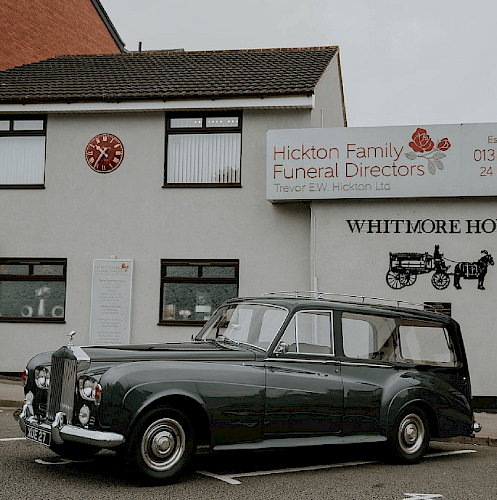If there isn’t a pre-paid funeral plan in place and there is only a limited amount of funds towards the payment of the funeral, then the funeral director can help with information and contact numbers for the Department of Works and Pensions. They can discuss options available because you may be able to apply for financial support, towards the costs of arranging the funeral. This is means-tested and applies to the person’s financial situation who is responsible for making the arrangements and paying for the funeral expenses. We are also able to offer Funeral SAFE finance to help with the costs.
It is always best to speak with a funeral director about financial options available to help with the costs for the funeral service. When a person has died, all the benefits and any financial support that they were claiming will cease. These benefits are not able to be taken into consideration towards any financial support to help for the payment of their funeral.
Preparing For An Expected Death?
End-of-life Care
When a loved one has been placed on end-of-life care and they are at home, in a residential home, care home or in the hospital, this can be a very difficult time for all the family.
The main objective is to make your loved one as comfortable as possible and give all the family the opportunity to spend as much time as they can with their loved one. This can be offering care and support to them by being present and holding their hand, providing comforting words, and making sure they know how much they are loved. This time is very precious and important to everyone involved.
Planning Ahead
Your loved one may have spoken with you prior to their illness and shared their thoughts and wishes with regards to the certain type of funeral they would like – such as burial or cremation, the location for the funeral, music, or special requests for floral tributes or donations. They may have made notes with reference to these wishes or even included them in their last will and testament.
If your loved one hasn’t made any arrangements or expressed any wishes for their funeral service, when a loved one is placed on end-of-life care or becoming frail, then it is a good idea for families to approach a funeral director and begin to think about the options available. This can be done at one of our funeral homes or in the comfort of your own home.
You will be asked if your loved one’s wishes are for cremation or a burial service. Once established, the funeral director can help and support. They will chat with you about preferences and ideas and then explain and offer all the different types of services available to include costings and options for payment. This can be really helpful, because approaching a funeral director after losing a loved one can be emotionally draining and upsetting.
Pre-Paid Funeral Plans
Many people now have pre-paid funeral plans in place, to help ease the stress and upset following their passing. This helps the family to make sure they carry out the wishes just as their loved one had planned.
Taking out a pre-paid funeral plan is a very thoughtful decision for everyone involved. This allows for everyone to be in control of their own choices and wishes for their funeral service. The cost of the funeral director’s fees and other services are all covered within the plan.
Following the plan holder’s passing, the funeral plan needs to be handed to the nominated funeral director and they will do the rest. They may have left plans and instructions in their will that a funeral plan is in place and who the funeral directors are. It is important to share this information with a residential home or care home, if the plan holder is residing there at the time of their passing.
When a loved one has moved into a residential home or care home, the manager or senior member of staff will complete a care plan. This will cover questions about future planning, if there is a pre-paid funeral plan in place or if they have a nominated funeral director they wish to use. They will cover questions about specific wishes to be considered and carried out in the event of a sudden illness when they aren’t able to discuss their wishes.










